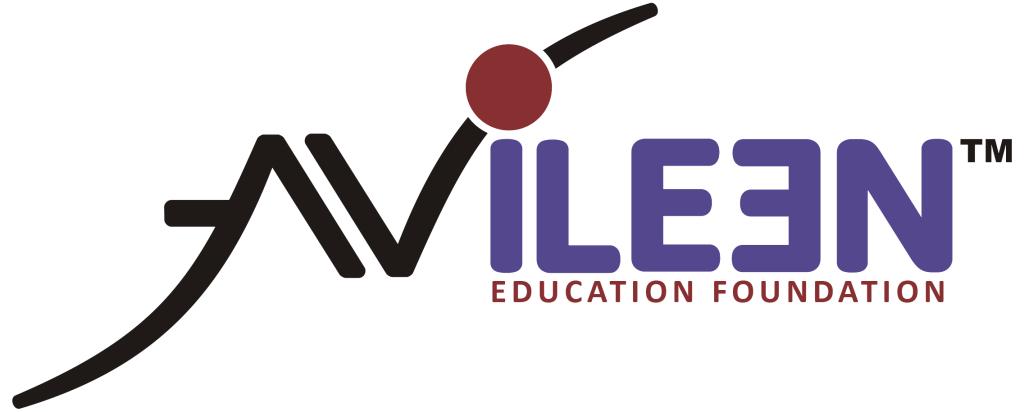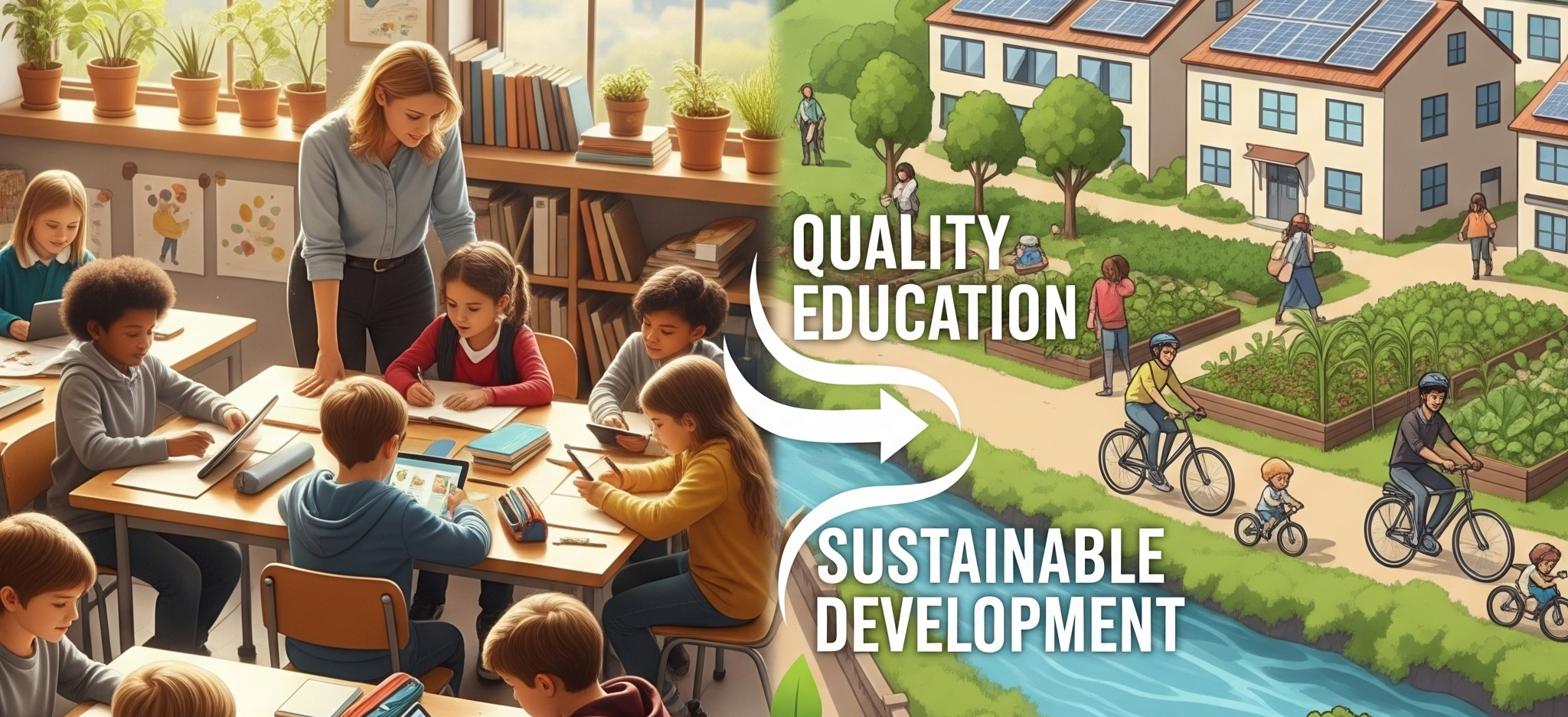Education has always been the primary driver of progress, and understanding why education is essential is crucial. In today’s world, the role of education in sustainable development is inextricably linked to building sustainable societies, developing future leaders, and ensuring equal opportunities for all.
Quality education is crucial for long-term growth and is a key pillar of the Sustainable Development Goals framework. It forms the foundation for a nation’s social, economic, and cultural development.
Why Quality Education Is Important for Sustainable Development
The role of education in sustainable development entails meeting current needs without jeopardising the future. To realise this vision, people must have the knowledge, values, and skills to drive innovation while preserving social and environmental balance. In this case, quality education is critical. This is because it teaches not only academic knowledge but also critical thinking, problem-solving, and responsibility skills, all of which are required for society to thrive.
Children who receive quality education learn more than just math and science. They also learn how to make decisions that affect both their community and the environment. Schools promote inclusion and holistic development, which helps shape citizens who value sustainability and equity.
This explains why we need education, not only to achieve academic success but also to cultivate values and skills that preserve social and ecological balance.
Promoting Economic Growth through Education
A strong economy cannot exist in the absence of a skilled and educated workforce. The role of education in sustainable development is to improve employment in the country and productivity while encouraging entrepreneurship. For countries that invest heavily in education, the result can be significant GDP growth and innovation. Workers with an educational background are more innovative, can quickly adapt to new technology, and are better prepared to meet global challenges.
According to research, each additional year of education can increase an individual’s earning potential while also benefiting the overall economy. Therefore, education benefits both individuals and the economy as a whole.
This shows why we need education in order to create a workforce that is capable of supporting innovation, entrepreneurship, and long-term growth.
Empowerment and Social Equity
Reduced inequalities are one of the most important aspects of education. Education for sustainable development can help to bridge the divide between different segments of society. When children from disadvantaged backgrounds have equal access to education, they will have the same opportunities for success.
Education is essential, particularly for women. According to research, educated women are more likely to contribute to community development and make decisions. also have a better chance of keeping their family healthy. This avalanche effect shows how education is critical to achieving social equality and sustainable growth.
Education and Environmental Awareness
Humans who are aware of environmental issues and challenges will contribute positively to our planet’s future. Climate change, biodiversity loss, and global warming are issues that require widespread attention. High-quality education incorporates environmental studies, sustainability, and global citizenship into the learning process
Schools prepare students to become environmentally conscious citizens of tomorrow by teaching them about renewable energy, conservation, and responsible consumption. Online resources such as vidyalay.org play a crucial role emphasising the importance of providing urban and rural students with access to learning platforms that promote environmental awareness.
Developing Skills for a Sustainable Future
Education for sustainable systems must adapt in order to teach students how to collaborate across industries, solve real-world problems, innovate responsibly, and work together.
Quality education fosters the following essential skills:
- Critical thinking and problem solving – Equipping students to face necessary challenges.
- Digital literacy refers to preparing people for a technology-driven economy.
- Collaboration enables teamwork among people from various backgrounds
- Adaptability gives learners the ability to adapt to rapidly changing environments.
These skills are essential for creating sustainable communities that rely on innovation and collaboration.
Improving Access to Technology for Quality Education
Technology has transformed education. Digital learning platforms allow students to access high-quality resources even from remote locations. Online classes, smart classrooms, and eLearning modules have all helped to bridge the gap that previously prevented many children from accessing a basic education.
NGO’s like Vidyalay.org demonstrate how technology can democratize education for underprivileged populations. Digital tools can promote long-term growth in individuals and societies by making resources more affordable and accessible.
Challenges in Providing Quality Education
Despite the benefits, there are some challenges. Millions of children lack basic infrastructure and access to qualified teachers. Rural areas are frequently underfunded, while urban areas may be overcrowded and provide unequal opportunities.
Another issue is that traditional curricula do not align with the skills required in modern society. Students who do not receive up-to-date education may be unprepared for long-term development. Closing these gaps will require global cooperation, policy changes, and community-driven initiatives aligned with the sustainable development goals quality education target
Education is a global responsibility
The United Nations has a number of priorities. Sustainable Development Goals quality Education, making it the most important global objective. To reach this objective, governments, non-governmental organizations (NGOs), and educators must collaborate. Building schools is important, but creating educational systems that prioritize lifelong learning and sustainability is equally essential
To provide equal access to education for all children, international organizations and local groups must work together. Inclusive solutions like Vidyalay.org become increasingly essential for successfully reaching global goals
Conclusion
Nobody can deny that quality education is an important factor in achieving sustainable development. Education is the common thread that connects all aspects of sustainability, including economic growth, social justice, environmental awareness, and skill development.
A world that invests in its students invests in its own future. Societies can positively influence future generations by ensuring that every individual has the opportunity to learn, grow, and innovate. Education is more than just a way to achieve personal success. Education is the foundation for a sustainable and equitable world.
FAQ’s
1. Why is quality education important for sustainable development?
Quality education is important because it equips individuals with academic knowledge, critical reasoning, problem-solving, and responsibility skills. It promotes social inclusion, environmental consciousness, and decision-making abilities. All of these are important for building a sustainable society and ensuring long-term social, economic, or environmental balance.
2. What role does education play in economic growth?
A well-educated workforce increases productivity, innovation and entrepreneurship. Every additional year of schooling increases the earning potential for an individual and strengthens overall economic growth. Educated workers are more innovative, adapt quickly to new technology, and are better prepared to meet global challenges.
3. What role does education have in social justice and empowerment?
Education reduces inequalities because it provides equal opportunities for children who come from disadvantaged backgrounds. Women are particularly affected by this, as educated women contribute positively to their community, the health of their families, and decision-making. Education promotes social justice and sustainable growth.
4. What can technology do to improve education for all?
Smart classrooms, online platforms, and modules can help students access quality resources, even if they are located in remote areas. Platforms such as Vidyalaya.org help make education more accessible and affordable. This encourages the long-term development of individuals and societies.

